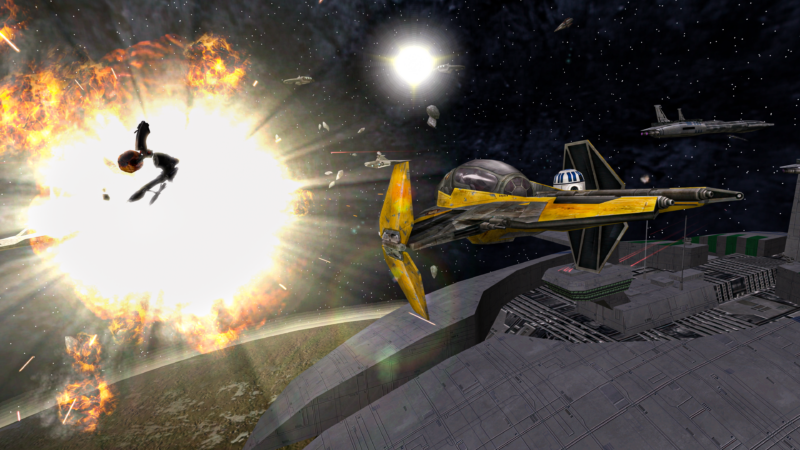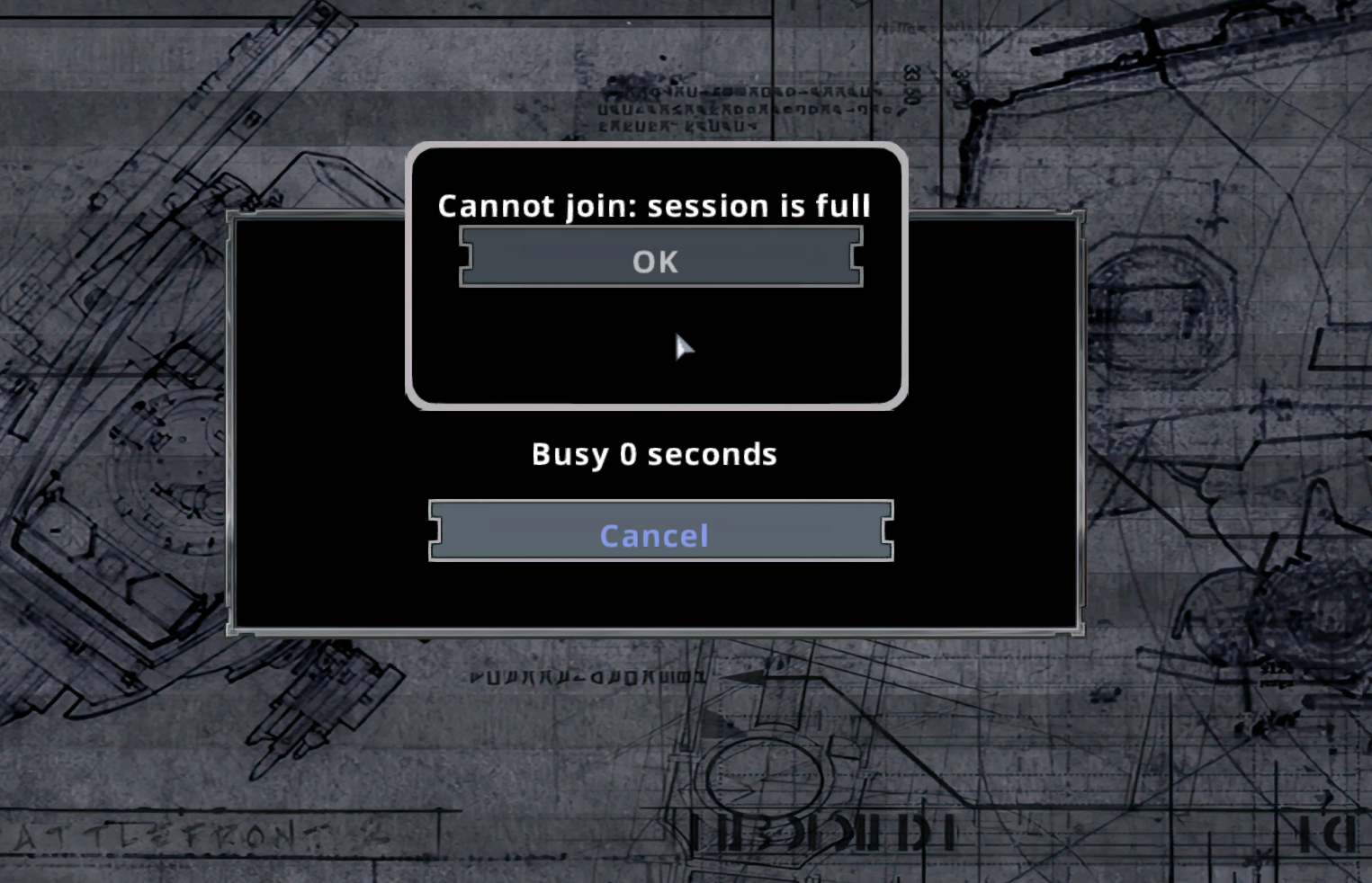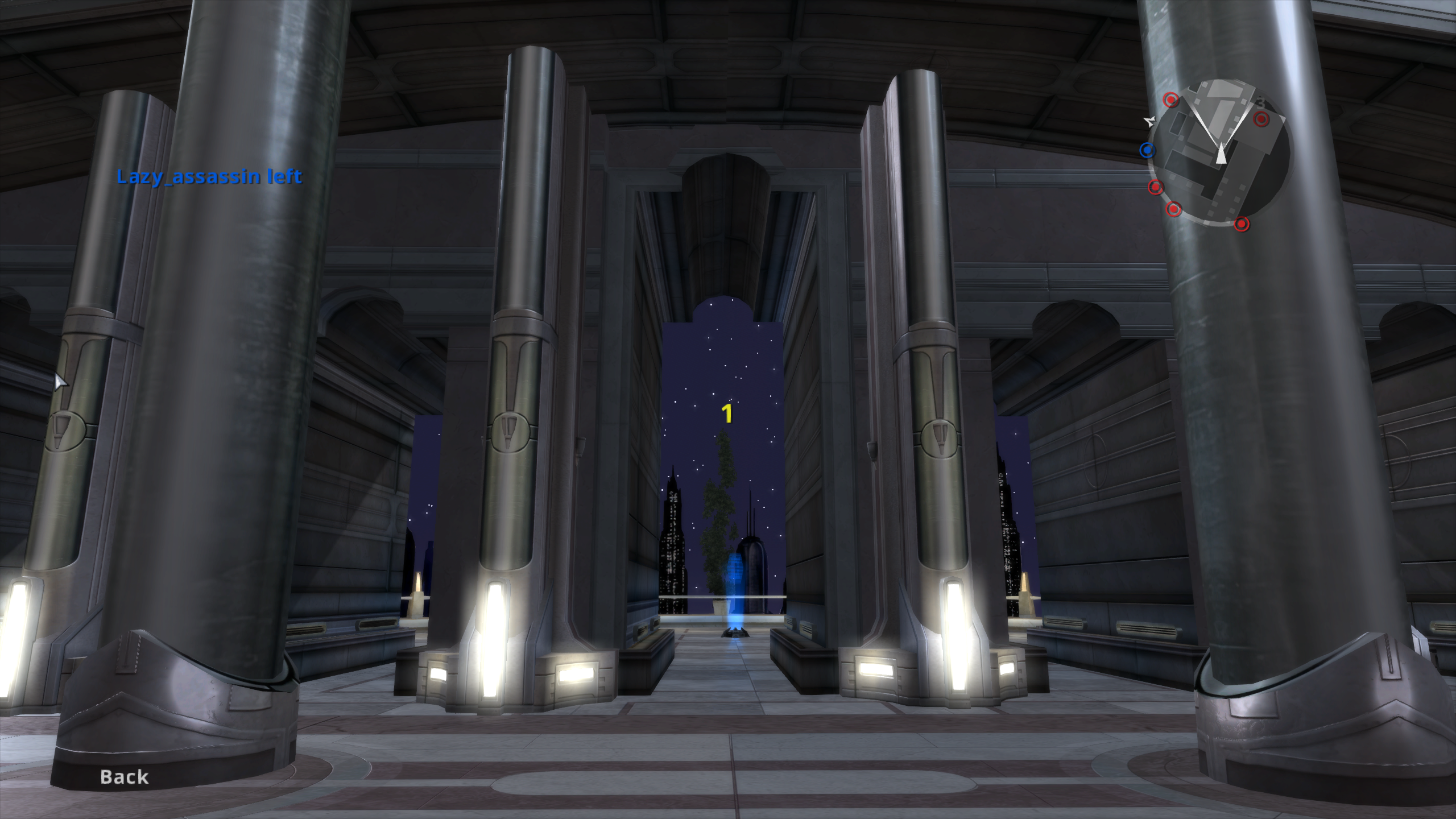
Aspyr Media
The last version of Star Wars: Battlefront, released by Electronic Arts, was so stuffed full of loot boxes and pay-to-play systems that EA admitted it “got it wrong” and overhauled the game.
So it was that when the well-regarded, pre-EA versions of Star Wars: Battlefront were announced for a modern remaster and re-release, by experienced porting firm Aspyr Media, there was (forgive us) a new hope. As we wrote at the announcement:
[T]here was nothing quite like the originals, which were PC games first and foremost … There was a purity to those games that’s lost in the general, well, EA-ness of the reboots.
And, lo, was there much rejoicing when Star Wars: Battlefront Classic Collection arrived? There was not. Reviews of the $35 package are “Mostly Negative” on Steam as this is written, with roughly 20 percent of reviews positive. Players are reporting numerous bugs and (rightfully, we might suggest) complaining about the lack of an option to invert joystick axes. There’s also a lack of aim assist for console players, which typically helps round out their relative disadvantage to PC players using a mouse and keyboard.
Perhaps more crucial to this early negative reaction is the “battle” part of Battlefront. Server issues seem to plague the game since its launch, with long or indefinite waits on matchmaking. Some players reported that only three servers, each hosting a maximum of 64 players, were present at launch for a game that had more than 9,000 concurrent players around that time.
Around 10 am Eastern, I decided to kick the exhaust ports on the ion thrusters myself. The game asked me to register my copy on launch, which timed out when I tried to do so. Moving on, I chose Battlefront 2, created a profile, then requested an online quickmatch. The result was an error message: “Cannot join: session is full.” Not that I had selected a particular session, mind you.

You may not have selected a session in choosing a Quickmatch option, but you should know that it’s full.
Aspyr Media
I encountered the same error two or three times, then decided to try the first Battlefront game instead. I did get into one match and play it to conclusion, a loss on my side. Feeling lucky, I jumped into another battle and made it through a few deaths, only to get stuck during the countdown to respawning, stuck on “1.” I saw one error text suggesting this was an actual error and then hung around in a liminal state, waiting to be reborn, unable to watch other players duke it out as one normally does during purgatory. (Other players have reported similar “1” hangs.)

Aspyr Media
This is how it’s gone throughout the day: partial success, a bit of blasting, and then unexpected hangs, drops, or failures to find new games. I held off on reporting issues with the matchmaking early in the day, in case the servers were quickly brought back online. But my last try was at 2:40 pm Eastern, and upon clicking to quickly join a game in Battlefront II, the game reported: “No games matching search criteria found. Create a session?”
For what it’s worth, the single-player campaigns are, reportedly, playable, if still showing their roughly 20 years of age.
I can only express my appreciation for the games that get their servers in solid condition before launch. The first Battlefront launched in 2004, and the sequel was 2005. Since then, a litany of online-dependent games have launched with server issues. EA’s 2013 SimCity debacle set the standard, but Battlefield 4 and Titanfall added to the company’s reputation for traffic jams. Diablo 3’s “Error 37” earned a spot in our 2013 list of worst PC game launches that aren’t SimCity.
And yet, in 2024, even a game from 2004, brought forth by a firm with experience in hauling games forward in time, can experience the kind of “What happened?” moment that has plagued all kinds of games, regardless of how fast the average player’s connection gets over time.
Ars has reached out to Aspyr representatives and will update this post with new information.






















+ There are no comments
Add yours